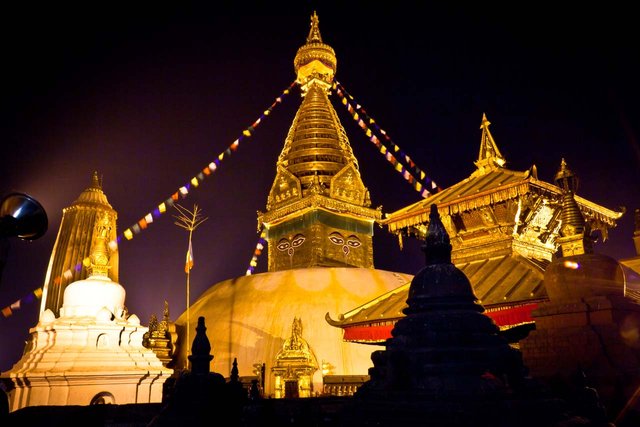SWAYAMBHUNATH: A WORLD HERITAGE SITE THAT WITHSTANDS A MASSIVE 7.8 MAGNITUDE EARHQUAKE

Swayambhunath is an ancient religious architecture at top of a hill in the Kathmandu Valley, west of Kathmandu city. The Tibetan name for the site means 'Sublime Trees' (Wylie: Phags.pa Shing.kun), for the many varieties of trees found on the hill. However, Shing.kun may be a corruption of the local Nepal Bhasa name for the complex, Singgu, meaning 'self-sprung'.[1] For the Buddhist Newars in whose mythological history and origin myth as well as day-to-day religious practice, Swayambhu occupies a central position, it is probably the most sacred among Buddhist pilgrimage sites. For Tibetans and followers of Tibetan Buddhism, it is second only to Boudha.
Quick Intro:
The dome at the base represents the entire world. When a person awakes (represented by eyes of wisdom and compassion) from the bonds of the world, the person reaches the state of enlightenment. The thirteen pinnacles on the top symbolize that sentient beings have to go through the thirteen stages of spiritual realizations to reach enlightenment or Buddhahood.
There is a large pair of eyes on each of the four sides of the main stupa which represent Wisdom and Compassion. Above each pair of eyes is another eye, the third eye. It is said that when Buddha preaches, cosmic rays emanate from the third eye which acts as messages to heavenly beings so that those interested can come down to earth to listen to the Buddha.
(source:wiki)